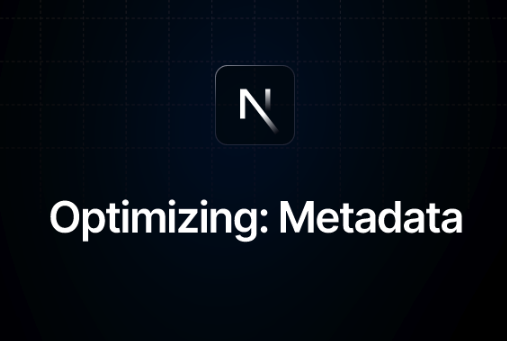New Next JS Metadata
Next JS changed their metadata as well as head tag
Getting Started

Next Js has a Metadata API that can be used to define your application metadata for improved SEO and web shareability.
There are two ways you can add metadata to your application:
Static Metadata
To define static metadata, export a Metadata object from a layout.js or static page.js file.
import { Metadata } from 'next';
export const metadata: Metadata = {
title: 'Title',
description: 'Description',
}
export default function Page() {}
Dynamic Metadata
You can use generateMetadata function to fetch metadata that requires dynamic values.
import { Metadata, ResolvingMetadata } from 'next'
type Props = {
params: { id: string }
searchParams: { [key: string]: string | string[] | undefined }
}
export async function generateMetadata(
{ params, searchParams }: Props,
parent?: ResolvingMetadata
): Promise<Metadata> {
// read route params
const id = params.id
// fetch data
const product = await fetch(`https://.../${id}`).then((res) => res.json())
// optionally access and extend (rather than replace) parent metadata
const previousImages = (await parent).openGraph?.images || []
return {
title: product.title,
openGraph: {
images: ['/some-specific-page-image.jpg', ...previousImages],
},
}
}
export default function Page({ params, searchParams }: Props) {}
Note: Both static and dynamic metadata through generateMetadata are only supported in Server Components.
Learn More
You can learn more from New Next Metadata.
Connect with me ^_^
If you like this article, kindly follow my github account for more and be sure to ⭐ it.